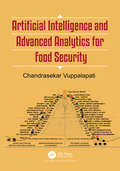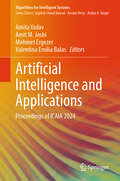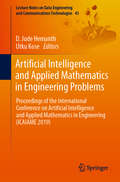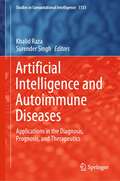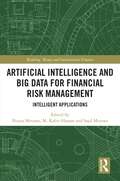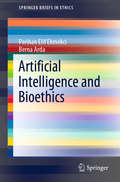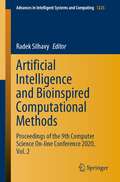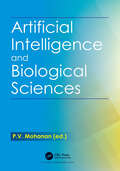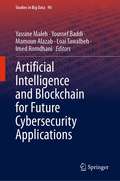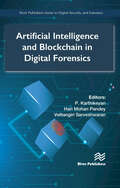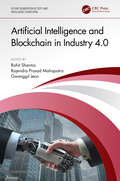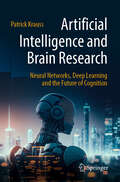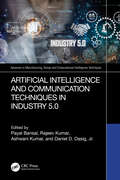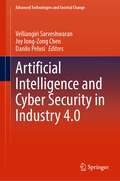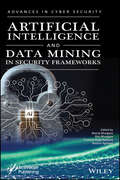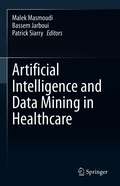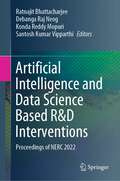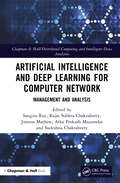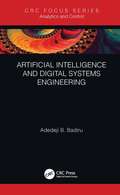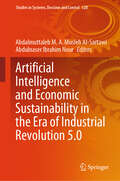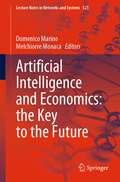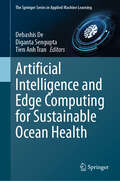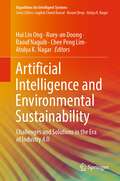- Table View
- List View
Artificial Intelligence and Advanced Analytics for Food Security
by Chandrasekar VuppalapatiClimate change, increasing population, food-versus-fuel economics, pandemics, etc. pose a threat to food security to unprecedented levels. It has fallen upon the practitioners of agriculture and technologists of the world to innovate and become more productive to address the multi-pronged food security challenges. Agricultural innovation is key to managing food security concerns. The infusion of data science, artificial intelligence (AI), advanced analytics, satellites data, geospatial data, climatology, sensor technologies, and climate modeling with traditional agricultural practices such as soil engineering, fertilizers use, and agronomy are some of the best ways to achieve this. Data science helps farmers to unravel patterns in fertilizer pricing, equipment usage, transportation and storage costs, yield per hectare, and weather trends to better plan and spend resources. AI enables farmers to learn from fellow farmers to apply best techniques that are transferred learning from AI to improve agricultural productivity and to achieve financial sustainability. Sensor technologies play an important role in getting real-time farm field data and provide feedback loops to improve overall agricultural practices and can yield huge productivity gains. Advanced Analytics modeling is essential software technique that codifies farmers’ tacit knowledge such as better seed per soil, better feed for dairy cattle breed, or production practices to match weather pattern that was acquired over years of their hard work to share with worldwide farmers to improve overall production efficiencies, the best antidote to food security issue. In addition to the paradigm shift, economic sustainability of small farms is a major enabler of food security. The book reviews all these technological advances and proposes macroeconomic pricing models that data mines macroeconomic signals and the influence of global economic trends on small farm sustainability to provide actionable insights to farmers to avert any financial disasters due to recurrent economic crises.
Artificial Intelligence and Applications: Proceedings of ICAIA 2024 (Algorithms for Intelligent Systems)
by Valentina Emilia Balas Amita Yadav Amit M. Joshi Mehmet ErgezerThe papers in this book are high quality refereed papers presented at ICAIA 2024, the second International conference on Artificial Intelligence and Applications, held at Maharaja Surajmal Institute of Technology, New Delhi in collaboration with Wentworth Institute of Technology, Boston, USA in March 2024. This book presents new and innovative developments and applications in machine learning, data mining, neural networks, computation optimisation technologies, followed by research applications in signals, language and classification, prediction, recommendations, and systems. This book is essential for researchers and practitioners in this field.
Artificial Intelligence and Applied Mathematics in Engineering Problems: Proceedings of the International Conference on Artificial Intelligence and Applied Mathematics in Engineering (ICAIAME 2019) (Lecture Notes on Data Engineering and Communications Technologies #43)
by D. Jude Hemanth Utku KoseThis book features research presented at the 1st International Conference on Artificial Intelligence and Applied Mathematics in Engineering, held on 20–22 April 2019 at Antalya, Manavgat (Turkey). In today’s world, various engineering areas are essential components of technological innovations and effective real-world solutions for a better future. In this context, the book focuses on problems in engineering and discusses research using artificial intelligence and applied mathematics. Intended for scientists, experts, M.Sc. and Ph.D. students, postdocs and anyone interested in the subjects covered, the book can also be used as a reference resource for courses related to artificial intelligence and applied mathematics.
Artificial Intelligence and Autoimmune Diseases: Applications in the Diagnosis, Prognosis, and Therapeutics (Studies in Computational Intelligence #1133)
by Khalid Raza Surender SinghThe book provides an overview of various autoimmune disorders and how artificial intelligence (AI) and machine learning will be used for the diagnosis, prognosis, and treatment of these disorders. AI algorithms are used to create synthetic patient populations with the properties of actual patient cohorts, build personalized predictive models of drug combinations and unravel complex relationships between diet, microbiome, and genetic line-up to determine the comparative treatment response. The book highlights clinical applications and challenges of AI for the diagnosis and treatment/management of autoimmune disorders which includes Rheumatoid Arthritis (RA), Multiple Sclerosis (MS), Type I Diabetes, Psoriatic Arthritis (PsA), and other critical diseases.
Artificial Intelligence and Big Data for Financial Risk Management: Intelligent Applications (Banking, Money and International Finance)
by Hassan M. Kabir Metawa Saad Metawa NouraThis book presents a collection of high-quality contributions on the state-of-the-art in Artificial Intelligence and Big Data analysis as it relates to financial risk management applications. It brings together, in one place, the latest thinking on an emerging topic and includes principles, reviews, examples, and research directions. The book presents numerous specific use-cases throughout, showing practical applications of the concepts discussed. It looks at technologies such as eye movement analysis, data mining or mobile apps and examines how these technologies are applied by financial institutions, and how this affects both the institutions and the market. This work introduces students and aspiring practitioners to the subject of risk management in a structured manner. It is primarily aimed at researchers and students in finance and intelligent big data applications, such as intelligent information systems, smart economics and finance applications, and the internet of things in a marketing environment.
Artificial Intelligence and Bioethics (SpringerBriefs in Ethics)
by Perihan Elif Ekmekci Berna ArdaThis book explores major bioethical issues emerging from the development and use of artificial intelligence in medical settings. The authors start by defining the past, present and future of artificial intelligence in medical settings and then proceed to address the resulting common and specific bioethical inquiries. The book discusses bioethical inquiries in two separate sets. The first set is comprised of ontological discussions mainly focusing on personhood and being an ethical agent of an artefact. The second set discusses bioethical issues resulting from the use of artificial intelligence. It focuses particularly on the area of artificial intelligence use in medicine and health services. It addresses the main challenges by considering fundamental principles of medical ethics, including confidentiality, privacy, compassion, veracity and fidelity. Finally, the authors discuss the ethical implications of involvement of artificial intelligence agents in patient care by expanding on communication skills in a case-based approach. The book is of great interest to ethicists, medical professionals, academicians, engineers and scientists working with artificial intelligence.
Artificial Intelligence and Bioinspired Computational Methods: Proceedings of the 9th Computer Science On-line Conference 2020, Vol. 2 (Advances in Intelligent Systems and Computing #1225)
by Radek SilhavyThis book gathers the refereed proceedings of the Artificial Intelligence and Bioinspired Computational Methods Section of the 9th Computer Science On-line Conference 2020 (CSOC 2020), held on-line in April 2020.Artificial intelligence and bioinspired computational methods now represent crucial areas of computer science research. The topics presented here reflect the current discussion on cutting-edge hybrid and bioinspired algorithms and their applications.
Artificial Intelligence and Biological Sciences
by P. V. MohananAdvancements of AI in medical and biological sciences have opened new ways for drug development. Novel therapeutic molecules and their target action can be easily predicted and can be modified. AI helps in disease detection and diagnosis faster. The breakthrough of AI is made especially in the area of personalized precision medicine, host-pathogen interaction and predictive epidemiology. These approaches could help in faster decision-making with minimal errors that can improve risk analysis, especially disease diagnosis and selecting treatment strategy. In agricultural practices, an exact combination of fertilizers, pesticides, herbicides, soil management, water requirement analysis, yield prediction and overall crop management can be modified by implementing AI interventions. AI could provide a better improvement in agriculture, medical research, pharmaceuticals and bio-based industries for a sustainable life.The key features of this book are: AI in medical Sciences, biotechnology and drug discovery; Application of AI in Digital Pathology, cytology and bioinformatics; Overview of AI, Machine Learning and Deep Learning; Impact of Artificial Intelligence in Society; Artificial Intelligence in Pharmacovigilance; and Ethics in Artificial Intelligence. The volume aims to comprehensively cover the application of AI in biological sciences. It is a collection of contributions from different authors who have several years of experience in their specific areas. The book will be useful for pharma companies, CROs, product developers, students, researchers, academicians, policymakers and practitioners.
Artificial Intelligence and Blockchain for Future Cybersecurity Applications (Studies in Big Data #90)
by Imed Romdhani Yassine Maleh Mamoun Alazab Youssef Baddi Loai TawalbehThis book presents state-of-the-art research on artificial intelligence and blockchain for future cybersecurity applications. The accepted book chapters covered many themes, including artificial intelligence and blockchain challenges, models and applications, cyber threats and intrusions analysis and detection, and many other applications for smart cyber ecosystems. It aspires to provide a relevant reference for students, researchers, engineers, and professionals working in this particular area or those interested in grasping its diverse facets and exploring the latest advances on artificial intelligence and blockchain for future cybersecurity applications.
Artificial Intelligence and Blockchain in Digital Forensics (River Publishers Series in Digital Security and Forensics)
by P. Karthikeyan Hari Mohan Pandey Velliangiri SarveshwaranDigital forensics is the science of detecting evidence from digital media like a computer, smartphone, server, or network. It provides the forensic team with the most beneficial methods to solve confused digital-related cases. AI and blockchain can be applied to solve online predatory chat cases and photo forensics cases, provide network service evidence, custody of digital files in forensic medicine, and identify roots of data scavenging. The increased use of PCs and extensive use of internet access, have meant easy availability of hacking tools. Over the past two decades, improvements in the information technology landscape have made the collection, preservation, and analysis of digital evidence extremely important. The traditional tools for solving cybercrimes and preparing court cases are making investigations difficult. We can use AI and blockchain design frameworks to make the digital forensic process efficient and straightforward. AI features help determine the contents of a picture, detect spam email messages and recognize swatches of hard drives that could contain suspicious files. Blockchain-based lawful evidence management schemes can supervise the entire evidence flow of all of the court data. This book provides a wide-ranging overview of how AI and blockchain can be used to solve problems in digital forensics using advanced tools and applications available on the market.
Artificial Intelligence and Blockchain in Industry 4.0 (Future Generation of Soft and Intelligent Computing)
by Rohit Sharma Rajendra Prasad Mahapatra Gwanggil JeonThe book addresses the challenges in designing blockchain-based secured solutions for Industry 4.0 applications using artificial intelligence. It further provides a comparative analysis of various advanced security approaches such as edge computing, cybersecurity, and cloud computing in the realm of information technology. This book: • Address the challenges in designing blockchain-based secured solutions for Industry 4.0 applications using artificial intelligence • Provides a comparative analysis of various advanced security approaches such as edge computing, cybersecurity, and cloud computing in the realm of information technology • Discusses the evolution of blockchain and artificial intelligence technology, from fundamental theories to practical aspects • Illustrates the most recent research solutions that handle the security and privacy threats while considering the resource-constrained in Industry 4.0 devices • Showcases the methods and tools necessary for intelligent data analysis and gives solutions to problems resulting from automated data collection The text aims to fill the gap between the theories of blockchain and its practical application in business, government, and defense among other areas. It further highlights the challenges associated with the use of blockchain for various industry 4.0 applications such as data analytics, software-defined networks, cyber-physical systems, drones, and cybersecurity. The text is primarily written for senior undergraduate, graduate students, and academic researchers in the fields of electrical engineering, electronics and communication engineering, computer engineering, manufacturing engineering, and industrial engineering.
Artificial Intelligence and Brain Research: Neural Networks, Deep Learning and the Future of Cognition
by Patrick KraussHow does artificial intelligence (AI) work and are there parallels to the human brain? What do natural and artificial intelligence have in common, and what are the differences? Is the brain nothing more than a biological computer? What are neural networks and how can the term deep learning be explained simply?Since the cognitive revolution in the middle of the last century, AI and brain research have been closely intertwined. There have been several spectacular breakthroughs in the field of AI in recent years, from alphaGo to DALL-E 2 and ChatGPT, which were completely unthinkable until recently. However, researchers are already working on the innovations of tomorrow, such as hybrid machine learning or neuro-symbolic AI. But what does this actually mean?Based on current research findings and exciting practical examples, this non-fiction book provides an understandable introduction to the basics and challenges of these fascinating disciplines. You will learn what neuroscience and psychology know about how the brain works and how artificial intelligence works. You will also learn how AI has revolutionized our understanding of the brain and how findings from brain research are used in computer science to further develop AI algorithms. Discover the fascinating world of these two disciplines. Find out why artificial intelligence and brain research are two sides of the same coin and how they will shape our future.
Artificial Intelligence and Communication Techniques in Industry 5.0 (Advances in Manufacturing, Design and Computational Intelligence Techniques)
by Ashwani Kumar Rajeev Kumar Daniel D. Dasig Payal BansalThe book highlights the role of artificial intelligence in driving innovation, productivity, and efficiency. It further covers applications of artificial intelligence for digital marketing in Industry 5.0 and discusses data security and privacy issues in artificial intelligence, risk assessments, and identification strategies.This book: Discusses the role of artificial intelligence applications for digital manufacturing in Industry 5.0 Presents blockchain methods and data-driven decision-making with autonomous transportation Covers reinforcement learning algorithm and highly predicted models for accurate data analysis in industry automation Highlights the importance of robust authentication mechanisms and access control policies to protect sensitive information, prevent unauthorized access, and enable secure interactions between humans and machines Explains attack pattern detection and prediction which play a crucial role in ensuring the security of business systems and networks It is primarily written for senior undergraduates, graduate students, and academic researchers in the fields of electrical engineering, electronics and communication engineering, computer engineering, industrial engineering, manufacturing engineering, and production engineering.
Artificial Intelligence and Cyber Security in Industry 4.0 (Advanced Technologies and Societal Change)
by Joy Iong-Zong Chen Danilo Pelusi Velliangiri SarveshwaranThis book provides theoretical background and state-of-the-art findings in artificial intelligence and cybersecurity for industry 4.0 and helps in implementing AI-based cybersecurity applications. Machine learning-based security approaches are vulnerable to poison datasets which can be caused by a legitimate defender's misclassification or attackers aiming to evade detection by contaminating the training data set. There also exist gaps between the test environment and the real world. Therefore, it is critical to check the potentials and limitations of AI-based security technologies in terms of metrics such as security, performance, cost, time, and consider how to incorporate them into the real world by addressing the gaps appropriately. This book focuses on state-of-the-art findings from both academia and industry in big data security relevant sciences, technologies, and applications.
Artificial Intelligence and Cybersecurity: Advances and Innovations (Green Engineering and Technology)
by Ishaani Priyadarshini and Rohit SharmaArtificial intelligence and cybersecurity are two emerging fields that have made phenomenal contributions toward technological advancement. As cyber-attacks increase, there is a need to identify threats and thwart attacks. This book incorporates recent developments that artificial intelligence brings to the cybersecurity world. Artificial Intelligence and Cybersecurity: Advances and Innovations provides advanced system implementation for Smart Cities using artificial intelligence. It addresses the complete functional framework workflow and explores basic and high-level concepts. The book is based on the latest technologies covering major challenges, issues and advances, and discusses intelligent data management and automated systems. This edited book provides a premier interdisciplinary platform for researchers, practitioners and educators. It presents and discusses the most recent innovations, trends and concerns as well as practical challenges and solutions adopted in the fields of artificial intelligence and cybersecurity.
Artificial Intelligence and Data Mining Approaches in Security Frameworks (Advances in Data Engineering and Machine Learning)
by Rashmi Agrawal Pramod Singh Rathore Neeraj Bhargava Ritu BhargavaArtificial intelligence (AI) and data mining is the fastest growing field in computer science. AI and data mining algorithms and techniques are found to be useful in different areas like pattern recognition, automatic threat detection, automatic problem solving, visual recognition, fraud detection, detecting developmental delay in children, and many other applications. However, applying AI and data mining techniques or algorithms successfully in these areas needs a concerted effort, fostering integrative research between experts ranging from diverse disciplines from data science to Artificial Intelligence. Successful application of security frameworks to enable meaningful, cost effective, personalize security service is a primary aim of engineers and researchers today. However realizing this goal requires effective understanding, application and amalgamation of AI and Data Mining and several other computing technologies to deploy such system in an effective manner. This book provides state of the art approaches of artificial intelligence and data mining in these areas. It includes areas of detection, prediction, as well as future framework identification, development, building service systems and analytical aspects. In all these topics, applications of AI and data mining, such as artificial neural networks, fuzzy logic, genetic algorithm and hybrid mechanisms, are explained and explored. This book is aimed at the modeling and performance prediction of efficient security framework systems, bringing to light a new dimension in the theory and practice. This groundbreaking new volume presents these topics and trends, bridging the research gap on AI and data mining to enable wide-scale implementation. Whether for the veteran engineer or the student, this is a must-have for any library.
Artificial Intelligence and Data Mining in Healthcare
by Patrick Siarry Bassem Jarboui Malek MasmoudiThis book presents recent work on healthcare management and engineering using artificial intelligence and data mining techniques. Specific topics covered in the contributed chapters include predictive mining, decision support, capacity management, patient flow optimization, image compression, data clustering, and feature selection.The content will be valuable for researchers and postgraduate students in computer science, information technology, industrial engineering, and applied mathematics.
Artificial Intelligence and Data Science Based R&D Interventions: Proceedings of NERC 2022
by Santosh Kumar Vipparthi Ratnajit Bhattacharjee Debanga Raj Neog Konda Reddy MopuriThis book title is a composition of multiple research efforts that are based on cutting-edge Artificial Intelligence (AI) techniques. Some of the signal processing problems are addressed with techniques from the broad areas of machine learning and deep learning.
Artificial Intelligence and Deep Learning for Computer Network: Management and Analysis (Chapman & Hall/Distributed Computing and Intelligent Data Analytics)
by Rajat Subhra Chakraborty Jimson Mathew Arka Prokash Mazumdar Sudeshna Chakraborty Sangita RoyArtificial Intelligence and Deep Learning for Computer Network: Management and Analysis aims to systematically collect quality research spanning AI, ML, and deep learning (DL) applications to diverse sub-topics of computer networks, communications, and security, under a single cover. It also aspires to provide more insights on the applicability of the theoretical similitudes, otherwise a rarity in many such books. Features: A diverse collection of important and cutting-edge topics covered in a single volume. Several chapters on cybersecurity, an extremely active research area. Recent research results from leading researchers and some pointers to future advancements in methodology. Detailed experimental results obtained from standard data sets. This book serves as a valuable reference book for students, researchers, and practitioners who wish to study and get acquainted with the application of cutting-edge AI, ML, and DL techniques to network management and cyber security.
Artificial Intelligence and Digital Systems Engineering (Analytics and Control)
by Adedeji B. BadiruThe resurgence of artificial intelligence has been fueled by the availability of the present generation of high-performance computational tools and techniques. This book is designed to provide introductory guidance to artificial intelligence, particularly from the perspective of digital systems engineering. Artificial Intelligence and Digital Systems Engineering provides a general introduction to the origin of AI and covers the wide application areas and software and hardware interfaces. It will prove to be instrumental in helping new users expand their knowledge horizon to the growing market of AI tools, as well as showing how AI is applicable to the development of games, simulation, and consumer products, particularly using artificial neural networks. This book is for the general reader, university students, and instructors of industrial, production, civil, mechanical, and manufacturing engineering. It will also be of interest to managers of technology, projects, business, plants, and operations.
Artificial Intelligence and Digital Twin Technology: 1st International Conference, IconAIDTT 2023, Sivakasi, India, April 26–28, 2023, Proceedings (Communications in Computer and Information Science #1972)
by Utku Kose Bui Thanh Hung Kottilingam Kottursamy Valarmathi K. Ramathilagam A. Sankarganesh SeeniThis book constitutes papers from the 1st International Conference on Artificial Intelligence and Digital Twin Technology, IconAIDTT 2023, held in Sivakasi, India, April 26–28, 2023. The 12 full papers and the 1 short paper included in this volume were carefully reviewed and selected from 41 submissions. The papers cover the following topics: Advanced AI and IoT Solutions for Environmental, Healthcare, and Security Challenges; Deep Learning Techniques for Wireless networks and Data Analysis.
Artificial Intelligence and Economic Sustainability in the Era of Industrial Revolution 5.0 (Studies in Systems, Decision and Control #528)
by Abdalmuttaleb M. A. Musleh Al-Sartawi Abdulnaser Ibrahim NourIndustry 5.0 has been dubbed as the digital revolution with a soul. This book incorporates a wealth of research which integrates artificial intelligence (AI) with economic sustainability and Industry 5.0. It examines the human-centricity of the upcoming digital revolution and the role of sustainable technologies in enhancing the livelihoods of workers, individuals, communities, and eventually societies. It provides insight on important areas related to artificial intelligence, sustainable development, and society 5.0. The chapters present a wide range of topics including block cipher, entrepreneurship and AI, AI and stock trading decisions, digital transformation, knowledge management, chatbot engineering, cybersecurity, and smart metering system. This book is beneficial to scholars and academics who will find in it the knowledge of the support of AI and its contribution to economic sustainability, and solutions to enhance human-centricity and resilience.
Artificial Intelligence and Economics: the Key to the Future (Lecture Notes in Networks and Systems #523)
by Domenico Marino Melchiorre MonacaThis book aims to deal with the main advances in the study of artificial intelligence, the digital and circular economy and innovation from a multidisciplinary perspective. Whoever governs the artificial intelligence will hold the keys to the world and the future. This consideration explains the growing role of artificial intelligence in our lives and the need to understand its mechanisms.This book presents original research articles addressing various aspects of artificial intelligence applied to economics, law, management, and optimization. The topics discussed include, economics, territorial policies, law, resource allocation strategies, information technology, and learning for inclusion.Combining the input of contributing professors and researchers from Italian and other foreign universities, the book is of interest to students, researchers, and practitioners, as well as members of the public in general, interested in the world of the artificial intelligence and economics.
Artificial Intelligence and Edge Computing for Sustainable Ocean Health (The Springer Series in Applied Machine Learning)
by Debashis De Tien Anh Tran Diganta SenguptaArtificial Intelligence and Edge Computing for Sustainable Ocean Health explores the transformative role of AI and edge computing in preserving and enhancing ocean health. The growing influence of Artificial Intelligence (AI), along with the Internet of Things (IoT) in generating wide coverage of sensor networks, and Edge Computing (EC) has paved the way for investigation of underwater as well as massive marine data, thereby generating huge potential for credible research opportunities for these domains. This book’s journey begins with a broad overview of Artificial Intelligence for Sustainable Ocean Health, setting the foundation for understanding AI's potential in marine conservation. The subsequent chapter, Role of Artificial Intelligence and Technologies in Improving Ocean Health in Promoting Tourism, illustrates the synergy between technological advancements and sustainable tourism practices, demonstrating how AI can enhance the attractiveness and preservation of marine destinations. The identification, restoration, and monitoring of marine resources along with the utilization of technology continues in Utilization of Underwater Wireless Sensor Network through Supervising a Random Network Environment in the Ocean Environment has been extensively dealt with. The technical challenges of underwater imaging, essential for accurate data collection and analysis has been discussed. The importance of Explainable AI is discussed in chapters like Sustainable Development Goal 14: Explainable AI (XAI) for Ocean Health, Explainable AI (XAI) for Ocean Health: Exploring the Role of Explainable AI in Enhancing Ocean Health, and A Comprehensive Study of AI (XAI) for Ocean Health Monitoring, which emphasize transparency and trust in AI systems. Further, Revolutionizing Internet of Underwater Things with Federated Learning, Underwater Drone, Underwater Imagery with AI/ML and IoT in ROV Technology and Ocean Cleanup has been demonstrated using innovative approaches to addressing underwater challenges. The book also includes a Review on the Optics and Photonics in Environmental Sustainability, focusing on the role of optics in marine conservation. Security issues are tackled in Intelligent Hash Function Based Key-Exchange Scheme for Ocean Underwater Data Transmission, and the overarching potential of AI in marine resource management is discussed in Artificial Intelligence as Key-enabler for Safeguarding the Marine Resources.
Artificial Intelligence and Environmental Sustainability: Challenges and Solutions in the Era of Industry 4.0 (Algorithms for Intelligent Systems)
by Atulya K. Nagar Chee Peng Lim Hui Lin Ong Ruey-An Doong Raouf NaguibThe book discusses comprehensive and cutting-edge research and development endeavors, as well as innovative solutions, in implementing AI and related technologies to meet and undertake current and future challenges towards ensuring environmental sustainability. It explores the future research directions in the era of Industry 4.0. In the beginning, an overview of the utilization of Al for environmental sustainability is provided. The remaining chapters of the book cover the technological and application aspects of Al for environmental sustainability with illustrative examples. Finally, challenges with respect to deploying Al to solving environmental problems and the future trends are covered.
